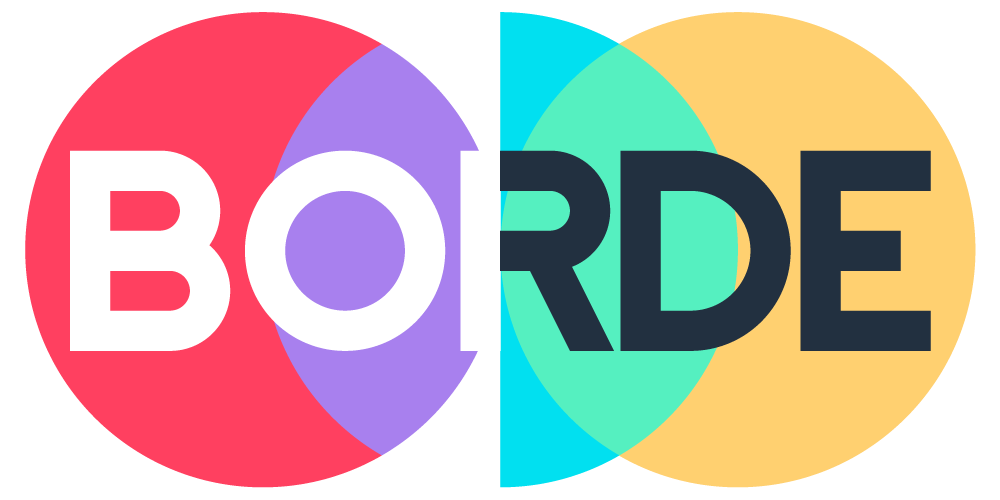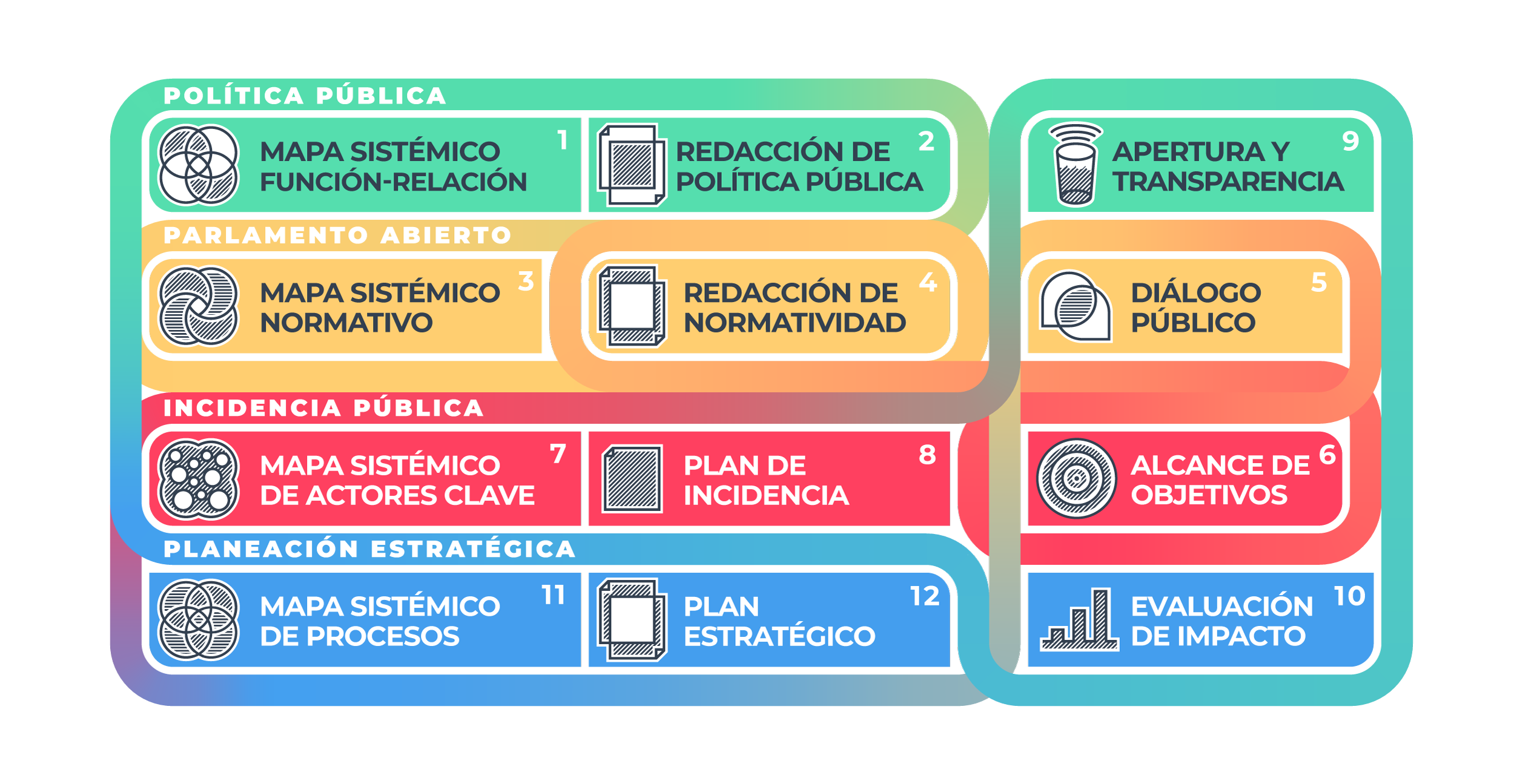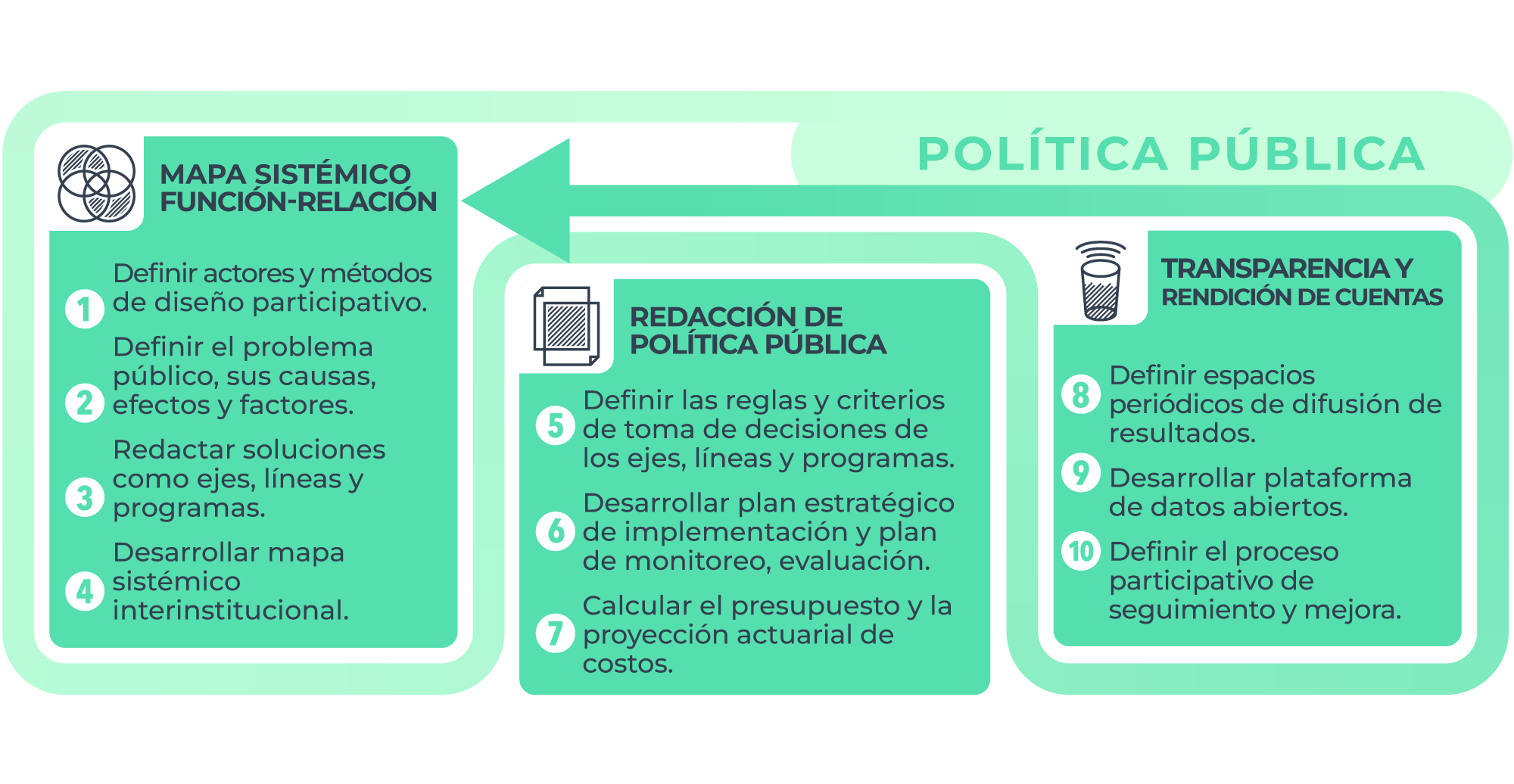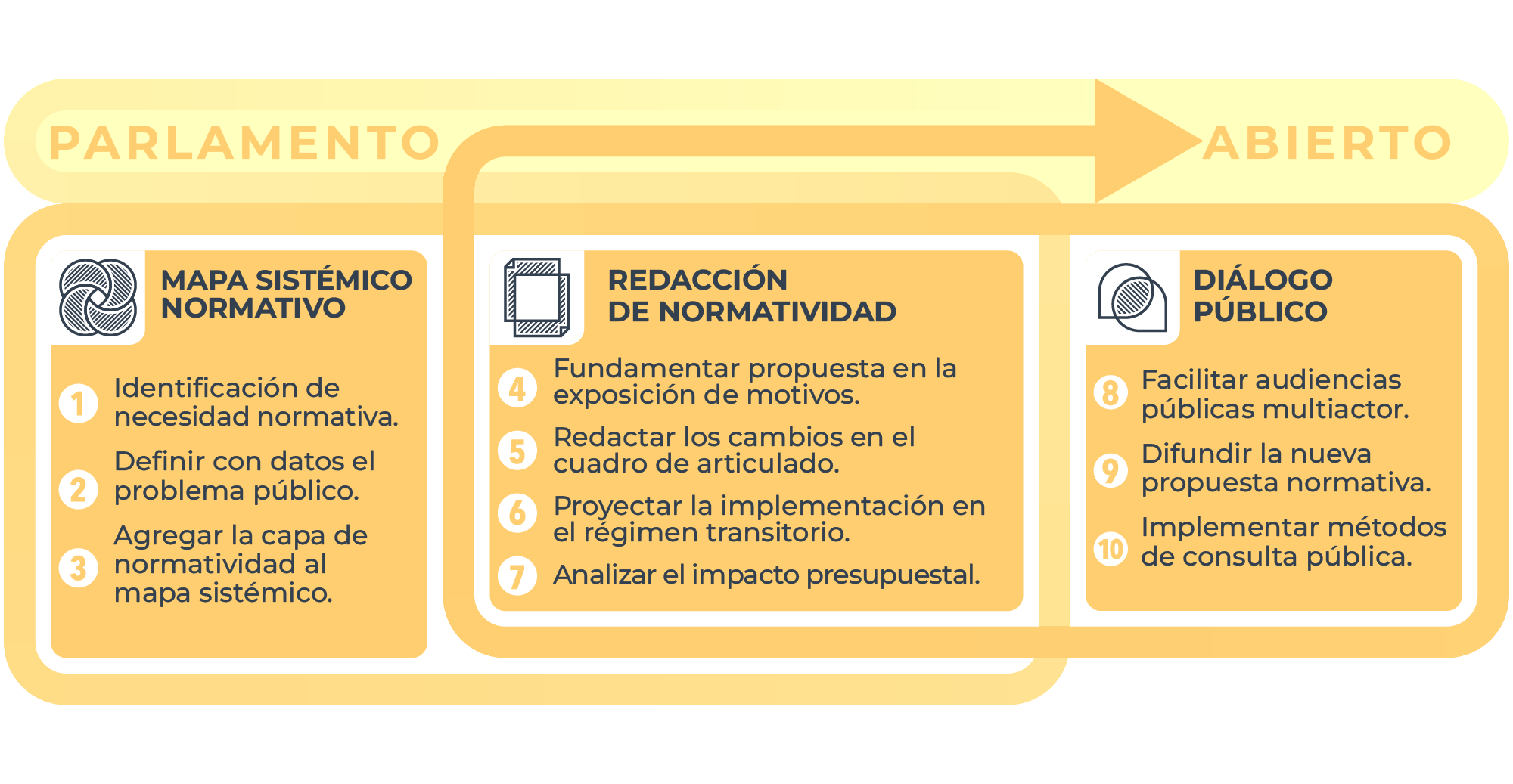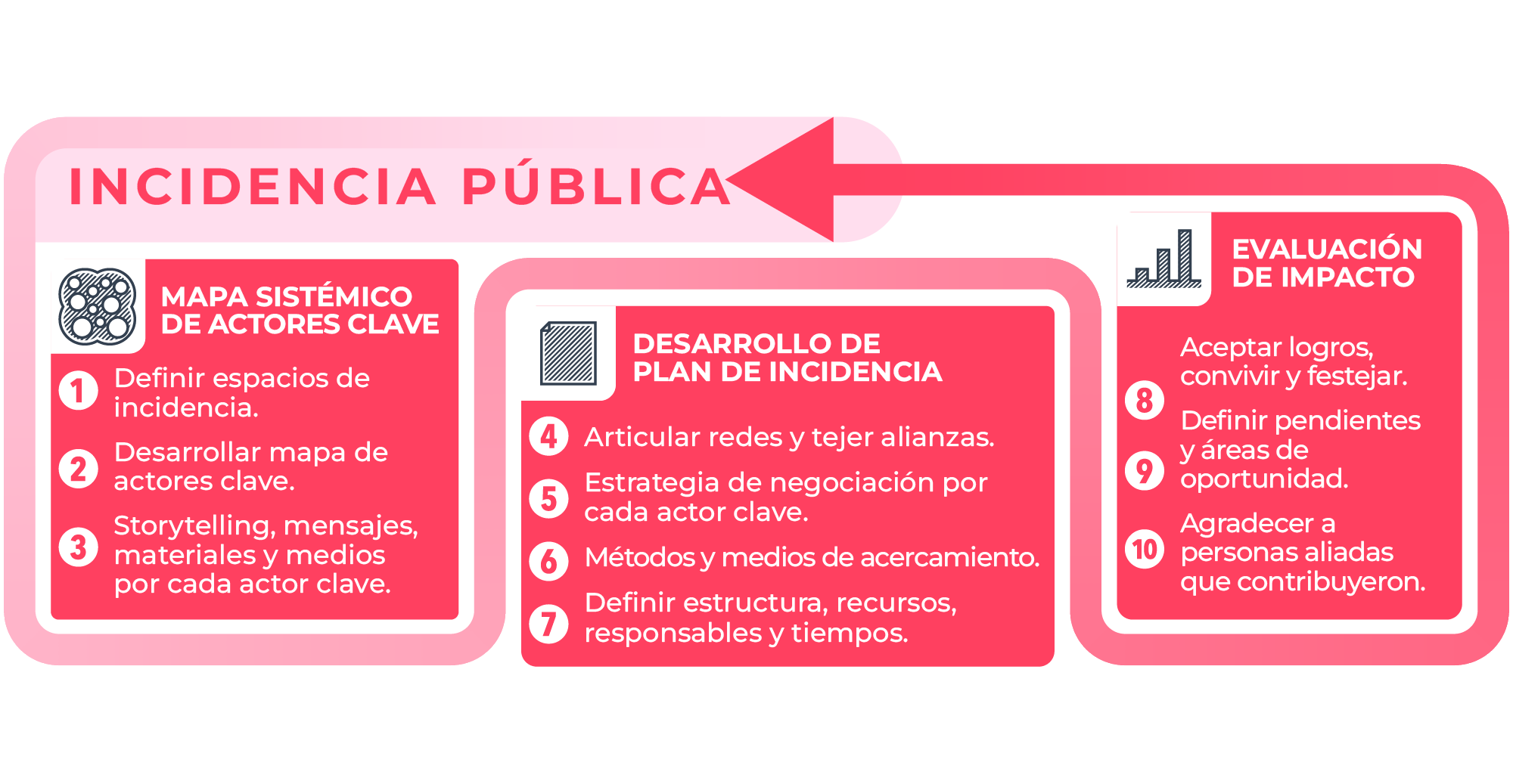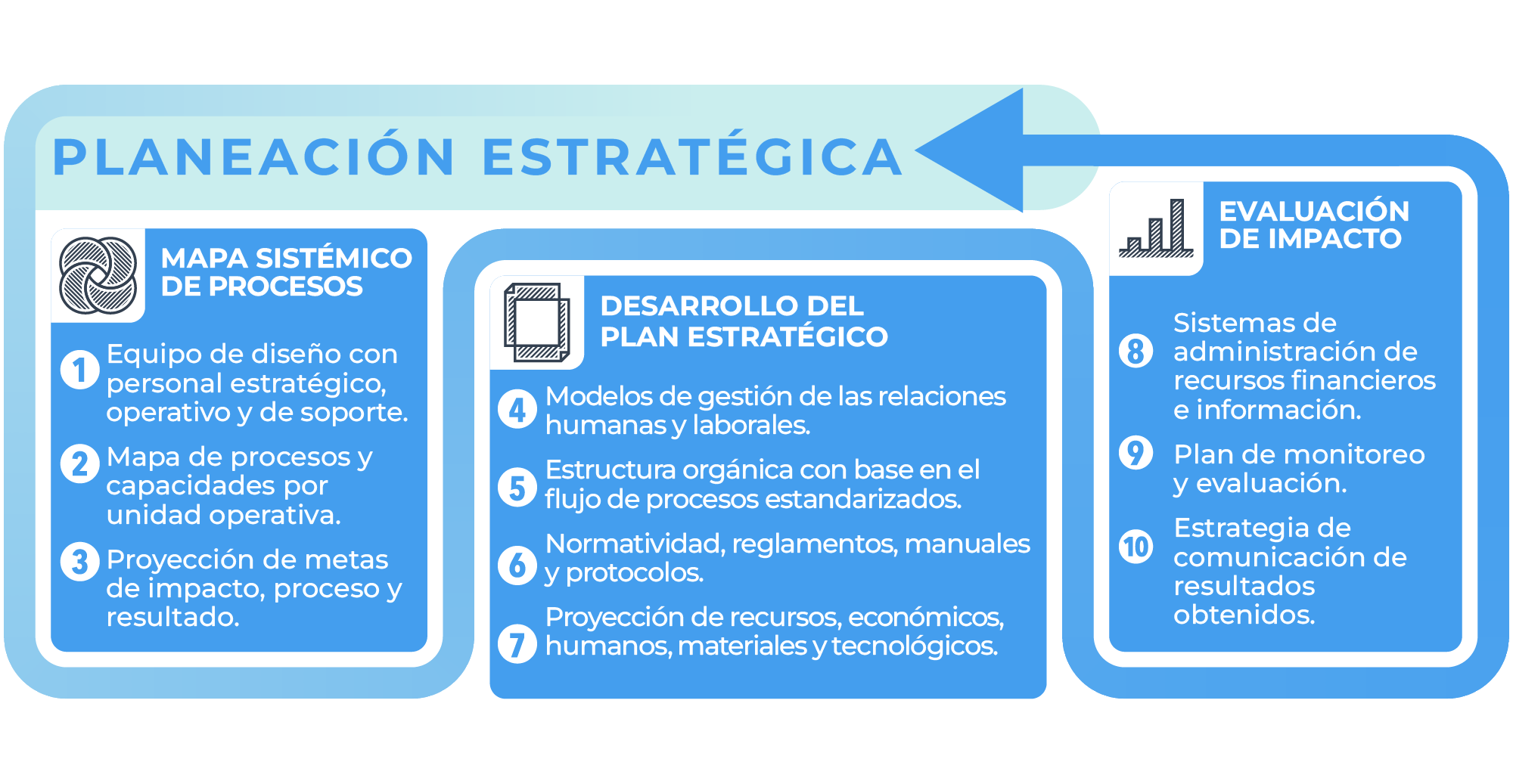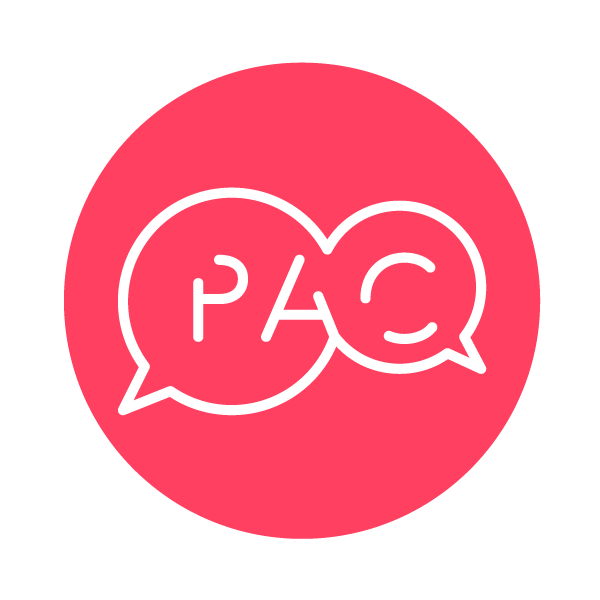
Potenciar la democracia participativa, empoderar a las comunidades, aumenta la transparencia y la incidencia en políticas públicas y y legislación.
Funcionalidades del la PAC:
Bot de facilitación de consensos comunitarios soportados por IA
Acceso multiplataforma y multilenguaje para asegurar amplia accesibilidad.
Creación de propuestas
A partir de problemas detectados por las personas usuarias de las instituciones, mediante flujos conversacionales facilitados con metodologías de diseño participativo de legislación y políticas públicas; soportados por IA.
Valoración e integración para generar propuestas colectivas
Calificación colectiva de propuestas y recolección de alternativas de solución de propuestas afines para facilitar el intercambio y alcanzar consensos.
Visualización y notificación de consenso alcanzados
Calificación colectiva de propuestas y recolección de alternativas de solución de propuestas afines para facilitar el intercambio y alcanzar consensos.
Llamado a la acción
Calificación colectiva de propuestas y recolección de alternativas de solución de propuestas afines para facilitar el intercambio y alcanzar consensos.
Campañas de recaudación
Calificación colectiva de propuestas y recolección de alternativas de solución de propuestas afines para facilitar el intercambio y alcanzar consensos.
Compartir los logros alcanzados
Calificación colectiva de propuestas y recolección de alternativas de solución de propuestas afines para facilitar el intercambio y alcanzar consensos.
Evaluación de la calidad y afinidad de las propuestas generadas en la PAC
Calificación colectiva de propuestas y recolección de alternativas de solución de propuestas afines para facilitar el intercambio y alcanzar consensos.
Comparativa de calidad y afinidad contra propuestas del monopolio estatal.
Calificación colectiva de propuestas y recolección de alternativas de solución de propuestas afines para facilitar el intercambio y alcanzar consensos.
How to disarm it?
Addressing Mexico’s democratic challenges demands strategic interventions across governance structures. Focused efforts on institutional reinforcement, legal transparency, and civic engagement are pivotal in reviving democratic health and restoring public confidence in governmental systems.
Committing to democratic strengthening:
- Balance of Powers and Open Government: It is crucial to maintain the separation and balance of powers to ensure a healthy democratic process. This involves establishing checks and balances to prevent the concentration of power (OECD, 2020).
- Promoting Open Parliament Processes: Transparency in the legislative process is vital. An open parliament allows for public scrutiny and participation, which enhances the quality of democracy (Inter-Parliamentary Union, 2021).
- Advancing Public Policy in the Judiciary for Transparency and Accountability: The judiciary must operate transparently and be held accountable to strengthen its independence and public trust (United Nations, 2021).
- Strengthening Autonomous Electoral and Transparency Bodies: Independent electoral and transparency bodies are key to fair elections and open governance (Transparency International, 2020).
Reinforcing the democratic rule of law:
- Promoting Schemes for Civil Security and Justice: Effective civil security and justice systems are fundamental to maintaining order and protecting rights while respecting the rule of law (World Justice Project, 2021).
- Professionalizing Investigation and Criminal Prosecution: Enhancing the capacity and integrity of law enforcement and prosecution services is crucial to reducing impunity and ensuring justice (United Nations Office on Drugs and Crime, 2020).
Participatory decision-making processes:
- Funding Systems for the Press and Civil Society: Supporting independent media and civil society organizations financially is essential for a free press and an active civil society, which are pillars of a healthy democracy (Freedom House, 2021).
- Standardized Public Management Systems: Implementing standardized management systems in public administration can improve efficiency, transparency, and accountability (World Bank, 2021).
References:
- OECD. (2020). Checks and Balances in Democratic Governments.
- Inter-Parliamentary Union. (2021). Guidelines for Open Parliament.
- United Nations. (2021). Judiciary Independence Principles.
- Transparency International. (2020). Global Corruption Report: Politics.
- World Justice Project. (2021). Rule of Law Index.
- United Nations Office on Drugs and Crime. (2020). Global Report on Crime and Justice.
- Freedom House. (2021). Freedom of the Press Report.
- World Bank. (2021). World Development Report: Governance and the Law.

To mitigate the crisis, it’s vital to strengthen checks and balances, ensure government transparency and accountability, and nurture an active civil society and independent press. International support, integrating democracy into trade and human rights agreements, is key. Critical steps include professionalizing security and justice authorities with ethical standards, creating stable, merit-based public sector careers, and encouraging citizen participation in policy-making. Finally, countering the ‘democratic washing machine’ in media, through media literacy and bolstering independent journalism, is essential for preserving democratic integrity.
What do we do in BORDE?
We execute strategic interventions aimed at bolstering democratic institutions, refining methodological frameworks, and fostering robust civic participation. Our approach is designed to stabilize social, economic, and political landscapes, effectively reducing criminal activities, alleviating migration and humanitarian crises, and diminishing the rise in violence.
Collaboration with public institutions
- BORDE plays a pivotal role in facilitating participatory drafting processes for legislative reforms, public policies, and strategic planning. This collaborative approach is crucial, as highlighted by Smith (2020), who emphasizes the importance of involving a diverse range of stakeholders in policy development. By engaging civil society, experts, and affected communities, BORDE ensures that policies, especially in sectors like security, criminal justice, and democratic institutions, are comprehensive and reflective of various perspectives (Johnson & Green, 2019).
- The focus on key sectors such as security and criminal justice is deliberate, as these areas are critical to national stability and public welfare. According to Brown (2021), involving citizens and relevant groups in policy-making enhances the effectiveness, transparency, and public trust in these institutions. BORDE’s approach aligns with this, aiming to create a more inclusive and trustworthy governance environment.
Strengthening civic society
- BORDE leverages technology platforms to evaluate political representation. These platforms, as observed by Thompson (2020), enable citizens to monitor and assess the performance of elected officials, fostering a culture of accountability and informed decision-making. Additionally, these tools play a vital role in facilitating participation and access to justice services, empowering individuals to actively engage with the legal and political systems (Davis & Clark, 2021).
- BORDE’s participation in Open Parliament participatory processes is a testament to its commitment to enhancing legislative transparency and inclusivity. This involvement is in line with the principles outlined by Williams (2019), who argues for the need for legislative processes to be more transparent, inclusive, and responsive to public needs. Through these efforts, BORDE contributes significantly to policy development that resonates with the interests and needs of the broader community.
- In conclusion, BORDE’s initiatives are centered on fostering collaboration between public institutions and civil society, using technology to enhance political accountability, and contributing to more transparent and inclusive legislative processes (Miller, 2020). These efforts are crucial in building a robust democratic framework that is participatory, accountable, and responsive to the needs of the people.
References:
- Brown, A. (2021). The Role of Citizen Participation in Strengthening Democratic Institutions.
- Journal of Political Studies, 34(2), 45-59. Davis, L., & Clark, S. (2021). The Impact of Digital Tools on Accessing Justice Services and Political Participation.
- Technology and Society Journal, 12(3), 112-128. Johnson, R., & Green, T. (2019). Stakeholder Engagement in Policy Development: Challenges and Opportunities.
- Policy Review, 28(4), 77-89. Miller, J. (2020). Fostering Collaboration Between Public Institutions and Civil Society. Governance Today, 15(1), 20-30. Smith, K. (2020).
- Participatory Policy Making: The Need for Diverse Voices. Public Policy Quarterly, 16(2), 88-97. Thompson, R. (2020).
- Evaluating Political Representation in the Digital Age. Democracy and Technology Journal, 14(1), 34-45. Williams, J. (2019).
- Open Parliament: Towards More Transparent Legislative Processes. Legislative Studies Quarterly, 21(3), 300-315.
Think Tank .gob
Open Sate
Open parliament
Open justice
